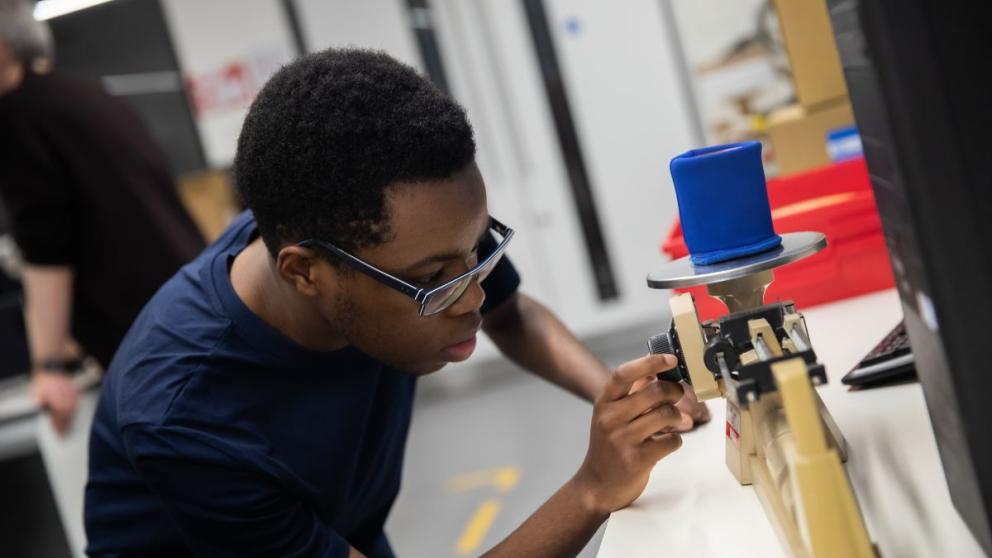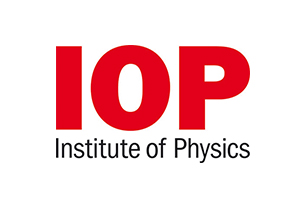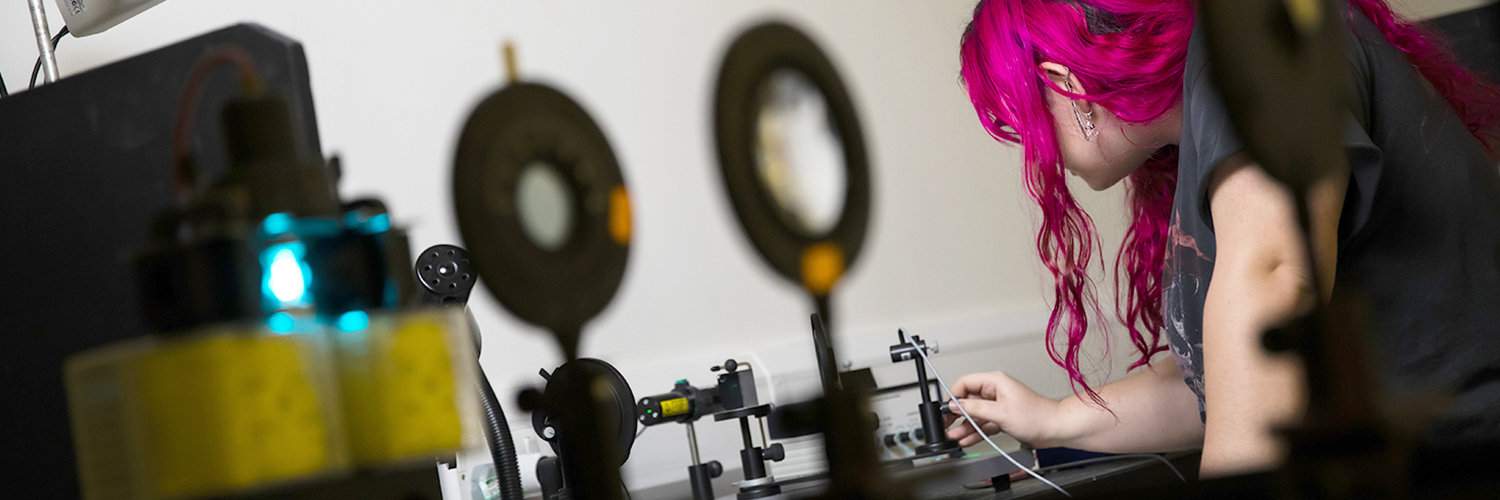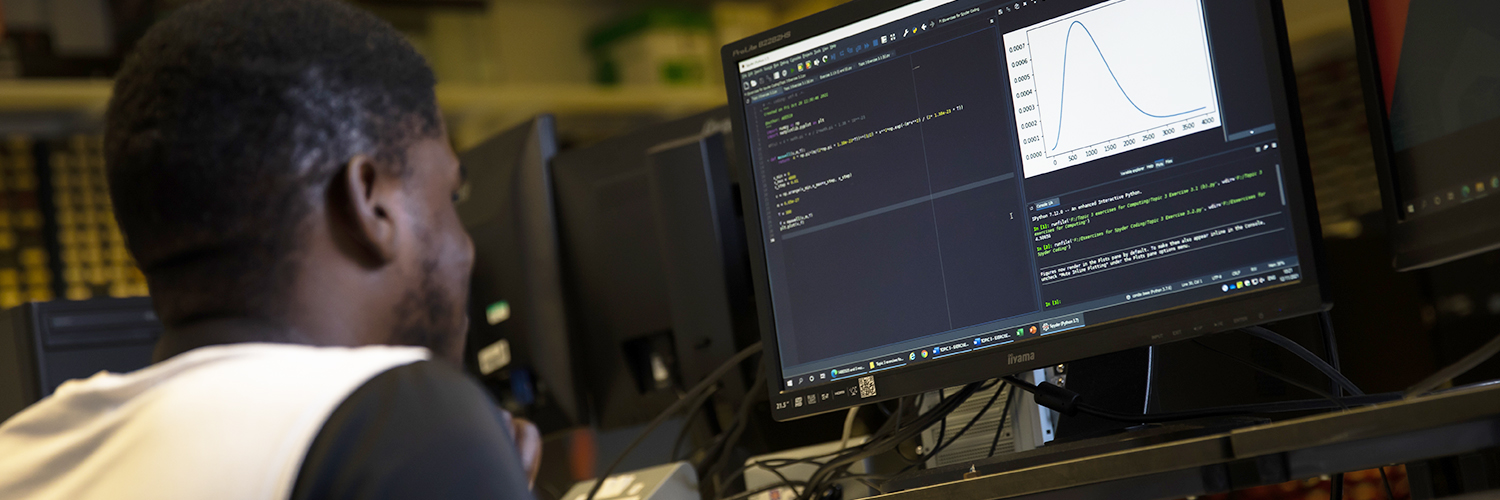
Physics with Foundation Year
Full-time
With placement
Four year
Five year
September 2026
In a nutshell
Physics drives discovery and innovation. If your enquiring mind seeks solutions to overcome today’s challenges, a physics degree with Salford will position you to make scientific breakthroughs and realise technological innovations that can shape tomorrow.
This foundation year pathway is designed to help you build a strong foundation of knowledge in physics and mathematics principles, laboratory skills and essential higher education study skills. This an ideal route if you want to study the full honours degree, but don't meet the direct entry requirements, or are returning to education.
On successful completion of the foundation year, you will progress on to the full BSc (Hons) Physics degree, where you will continue to build specialised knowledge for a success in a future career making new discoveries in industry or research.
Start your study journey
Register for our next Open Day to learn more about studying physics, explore our facilities and meet the course team
You will:
- Explore physics fundamentals, including classical dynamics, static and dynamic charges, quantum mechanics, fundamentals of relativity and atomic and nuclear physics
- Expand your knowledge and systematic understanding in quantum mechanics of atoms, molecules and solids, including the origin and limitations of the associated laws
- Build analytical, numerical and computer-based problem solving skills in Maxwell’s Equations and Wave Optics
- Learn the importance of mathematics in a quantitative description of physics, using symbolic computing and programming
- Experience computer laboratory sessions to apply numerical methods and techniques frequently encountered in physical and engineering challenges
- Develop problem solving skills throughout the course which will open up diverse career opportunities in research, science based industry, business teaching and finance
options available
Course accreditations


This is for you if...
You're passionate about physics but didn't reach the entry requirements for the full honours degree
You enjoyed studying mathematics or physics, and like problem-solving and discovering solutions
You're are looking for a degree that will lead to a wide range of career options
All about the course
Foundation year
The introductory foundation year is designed to cover core physics topics, introduce laboratory skills and strengthen your mathematical problem-solving approach.
With a focus on your progression, the foundation year also helps you to build the communication and study skills that you will need to succeed at an advanced level.
If you successfully complete and pass the foundation year, you will automatically progress on to our full BSc Physics degree.
BSc degree
Course delivery
Delivered over three years - or four with a placement year, you will study a suite of modules designed to embed theoretical knowledge, build career-focused skills and help you become a world-class scientist.
Throughout your degree you will explore the whole breadth of physics, including advanced topics such as quantum mechanics of atoms, molecules, nuclear and particle physics, and wave optics. You will also apply your knowledge while using mathematical and computing techniques to solve complex physics problems.
Learn more about the current course modules in the section below.
Learning experience
Collaboration is core to our values, so we strive to embed this as a learning objective throughout your studies. You will experience group projects that will build your confidence and capabilities in team working, problem-solving and communication - all desirable skills for real-world physics careers.
In the first year of our course, one of the modules is taught through problem-based learning and involves direct collaboration with industry employers. We host a series of seminars given by industry professionals to talk to students about what they can do with their physics degree. This gives students the chance to think about their future and choose modules based on the career pathways that they're most interested in.
Our second year students take part in a trimester-long group project, where students develop skills in areas such as computer interfacing and CAD design. Each group will design and build their own piece of physics-related equipment.
Industry placement
On this course, you will have the option to take an industrial placement year between year two and three (of the BSc degree). Although you will be responsible for securing your placement, a tutor will support you, monitor your progress and assess your final placement report.
Foundation Mathematics A and B
These modules entail the development of mathematical and modelling skills. Subjects include algebra, transposition of formulae, coordinate systems, logarithms, introduction to calculus, problem solving in velocity and acceleration, differentiation, integration and matrices.
Foundation Physics A and B
This module provides grounding in basic physics and the development of numerical problem solving. The syllabus includes, mechanics, properties of matter and wave propagation. Electronics and electricity are introduced, along with fields (magnetic, electric, gravitation etc.) and atomic and nuclear physics.
Foundation IT and Study Skills
This module involves the development of IT, research, team working, presentation and scientific reporting skills. In more detail, the use of spreadsheets, graphical representation of data, report writing, scientific presentations and group-based research will be undertaken.
Foundation Physics Laboratory
Laboratory skills, critical analysis of data and scientific reporting are examined in this module. The areas covered are experimental design, scientific measurement methods and data analysis. This is achieved through a series of experiments covering mechanics, thermal physics, electricity and waves.
Physics in Context
This module focuses on the underlying skills required in science and engineering. You will learn the importance of units, dimensional analysis, problem solving, presentation skills. We will also review the use of scientific IT, and introduce CAD/CAM and its application.
The module content will also highlight the relationship between these underlying skills and their role for scientists and engineers in the workplace. Seminars from various physics-based industrial organisations will give you the opportunity to consider your future employment options and outline what will be required to achieve your goals.
Physics Laboratory 1
In Physics Laboratory 1, you will learn core laboratory skills including measurement, data analysis and electronics. During the module activities, you will use these skills to undertake a set of experiments designed to complement the core physics ideas presented in other course modules.
The module is taught in the laboratory, facilitated by academic and technical staff.
Mathematics
Understanding and using mathematics is an essential skill for success in physics. During this module, you will review A-level standard mathematics topics covering algebra, trigonometry, functions, geometry, vectors, complex numbers and calculus, with emphasis on learning their applications to physics.
Modelling of Physical Systems
The use of computers to support problem solving in physics is widespread in both academic and industrial research. During this module, you will explore the application of numerical modelling, demonstrating how it can be complementary to mathematical-based analytical techniques, often allowing the examination the characteristics beyond the limitations of standard approaches. The learning focus is on developing appropriate physical models and is applied to the core areas of mechanics, waves and thermal physics.
Mechanics, Relativity and Quantum Physics
During this module, you will learn about the laws and applications of classical mechanics ,and how the principles of relativity and quantum physics adapt these laws to describe motion at relativistic speeds and of very small entities such as atoms and electrons.
The module is taught using a combination of lectures and interactive workshops.
Electricity, Magnetism and Light
During this module, you will learn about the physical laws associated with electricity and magnetism and how the motion of charged particles is governed by electric and magnetic fields. Module content will also introduce the properties of electromagnetic waves.
The module is taught using a combination of lectures and interactive workshops.
Electromagnetism
Thermal Physics
During this module, you will learn about the laws of thermal physics and how the statistical properties of many particle systems relate to the laws in macroscopic systems. We will also introduce the concept of entropy and build your understanding of different states of matter.
The module is delivered using a combination of lectures and problem-solving tutorials.
Waves and Optics
Learn about principles of wave motion applied to mechanical, sound and electromagnetic waves. The module will introduce wave interference and build your understanding of diffraction in optical systems and applications. The module will also introduce underlying mathematical techniques including partial differential equations, Fourier transforms and convolutions.
The module is delivered using a combination of lectures and problem-solving tutorials.
Physics Laboratory 2
During Physics Laboratory 2, you will learn about experimental and computational methods applied in physics. You will undertake a series of experiments across a range of areas in physics, learn how to record results and link your findings to laws of physics. You will further develop computing skills and apply these to simulations in physics.
The module is delivered in laboratory settings with instruction and hands-on help.
Quantum Physics
In this module, you will learn about the origins and principles of quantum mechanics. Both Schrӧdinger’s wave equation and the matrix formalism of quantum mechanics will be introduced, with applications in the fields of atoms and electrons.
The module is delivered using a combination of lectures and problem-solving tutorials.
Plus one module from below:
Principles of Acoustics (Year one part time)
This module provides a general introduction into the subject of Physical Acoustics with an emphasis on sound radiation.
Group Project in Physics
This module is designed to bring together important aspects that are related to physics-based project work. You will learn:
- the use of CAD/CAM software in the context of design and development of complex scientific parts and models;
- how to construct simple sensor circuits and write interface software allowing automatic data collection;
- experimental design and construction, incorporating the CAD/CAM; and,
- interface skills, time management, teamwork and written/oral presentation skills via a group project.
University Wide Language Programme
Choose to study a world language in a friendly, supportive environment. Delivered over two semesters, with additional resources available via Blackboard, you will receive around 50 hours of supported learning to help you progress and consolidate your listening, reading, speaking and writing core skills. Available languages include Arabic, French, German, Italian, Japanese, Mandarin Chinese and Spanish.
Project in Physics
Working under the supervision of academic staff, you will conduct a research and/or development project. You will initially conduct background research into your chosen scientific area and produce a literature review highlighting the important history and progress made.
You will learn to work independently and be responsible for your progress (monitored by your supervisor). As part of your final assessment, you produce a professional scientific report outlining the progress made and present this work to an academic staff panel.
Nuclear and Particle Physics
You will receive an overview of Nuclear Physics and gain an understanding of nuclear stability in terms of the Liquid Drop Model and of nuclear reactions involving neutrons, protons, electrons and neutrinos, and major experimental techniques and practical applications. The particle physics element will cover the basic discoveries of modern Particle Physics and introduce the ideas of Grand Unified Theory.
Condensed Matter Physics
You will learn how the fundamental laws of physics determine the properties of solids and liquids. The physics behind semiconductors and devices, magnetism and superconductivity will be developed. The module is taught by a combination of lectures and problem solving tutorials.
Physics Laboratory 3
This module concentrates on the advanced physics laboratory skills required in science, engineering and the workplace. You can choose to focus on either experimental or computational physics.
You will build knowledge and gain the ability to use and understand the methodologies that underpin hi-tech materials deposition and analysis apparatus. Throughout the module, we will highlight the relationship between the module topics and their role to scientists and engineers in the workplace.
Plus one module from below:
Photonics and Nanotechnology
Learn about the interaction of electromagnetic waves and photons with non-linear materials and applications. In the nanotechnology element, you will learn about applications of physics at the nanoscale including graphene, thin films, and quantum dots.
The module is taught by a combination of lectures and problem solving tutorials.
Astrophysics and Planetary Physics
Learn about the evolution of the universe, the structure and evolution of stars and galaxies and fundamental ideas in cosmology. In the planetary physics elements, you will learn about planetary formation, structure and the properties of matter under extreme conditions as found in the interior of planets.
The module is taught by a combination of lectures and problem solving tutorials.
We take a flexible approach to our course delivery that promotes diversity and inclusivity and provides a blended learning experience, which will vary to meet specific programme requirements. This learning time includes formal lectures and interactive activities such as seminars, tutorials, practical sessions, laboratory and studio learning. Smaller classes may be used to support collaborative activities such as project and group work and presentations. A range of different assessments and feedback is offered to meet the needs of both our diverse student body and specific subject needs.
Our undergraduate courses are normally made up of 20 credit modules which are equal to 200 hours of learning time. A three-year degree qualification typically comprises a total of 360 credits (120 credits per year).
Please note that exact modules and content offered may vary in order to keep content current and, for courses that offer optional modules, may depend on the number of students selecting particular options. When accepting your offer of a place to study on a programme with optional modules, you should be aware that optional modules may not all run each year. Your tutor will be able to advise you as to the available options on or before the start of the programme. Whilst the University tries to ensure that you can undertake your preferred options, it cannot guarantee this.
Frequently asked questions
What is a foundation year?
A foundation year offers a year of studying to gain an understanding of the programme before progressing to the full three-year studies. You'll get the chance to understand the way higher education studying works and gain the relevant skills and knowledge needed to undertake the full degree.
What is a physics degree?
Physics degrees introduce students to matter's properties, structures, movements, and behaviour in time and space. A physics program integrates natural science with mathematical analysis, training students in the core principles of physics and theories about the nature of the universe.
What jobs can you do with a physics degree?
- Academic researcher.
- Acoustic consultant.
- Astronomer.
- Clinical scientist, medical physics.
- Geophysicist.
- Higher education lecturer.
- Metallurgist.
- Meteorologist.
What is a typical day for a physicist?
Their work often includes conducting experiments and reviewing data and can include physical experiments or work on computers.
What are the basics of physics?
According to physics, the physical laws of matter, energy and the fundamental forces of nature govern the interactions between particles and physical entities, such as planets, molecules and atoms.
Is physics a hard degree course?
Physics is a challenging subject ─ it's a combination of maths and science. But despite its taxing nature, with a few basic tips and a little practice there's no reason you can't succeed. If you find your studies overwhelming, there will be support available from your lecturers and university support staff.
Will I learn skills outside of physics?
You will develop soft skills desired by industry and academia, including team working, problem solving, communication and presentation skills on this degree programme.
School Of Science, Engineering And Environment
Rising to the challenge of a changing world, our degree courses are designed to shape the next generation of urbanists, scientists, engineers, consultants and leaders.
Driven by industry, and delivered by supportive programme teams, you can develop the knowledge and skills to become unstoppable in your career.
Facilities
As a physics student, you'll have access to our world-class laboratories in our new £65 million SEE building. These include a purpose-built teaching suite with specialist areas for electronics, optics, lasers, computing, and composite materials.
What about after uni?
Employment
A physics degree will equip you with a skillset and scientific approach so you can discover new scientific breakthroughs and innovations. Due to the analytical and problem-solving nature of physics, this degree can open up a wide range of career pathways.
As a physics graduate, you can look for opportunities in a diverse range of sectors, including healthcare, defense, finance, research, education, engineering and the nuclear industry. Graduates can also take routes into teaching or academic research.
Today, you will find our alumni working in roles at leading regional, national and international organisations, including NHS Digital, the Home Office, Barclays, Rolls-Royce, National Nuclear Laboratory, the Royal Air Force, Laser Quantum, Christie’s Hospital, and Airbus Defence and Space.
Further study
You might find you want to learn more about fields covered by your physics degree. Building on our expertise, we offer a range of postgraduate courses that can take your interests and career opportunities further. Salford graduates and alumni who apply for our postgraduate courses also qualify to receive a generous fees discount.
What you need to know
Applicant profile
We are looking for applicants who are passionate about physics, and science in general. Ideally, you will have an aptitude for mathematics and problem-solving.
For entry onto the foundation year pathway, we consider applicants from any academic background, including those seeking a new direction to their studies. Industrial experience can be used in place of academic qualifications for applicants seeking to enter academia after spending time in the workplace.
Applicants must satisfy both the University’s General Entry Requirement and the specific entry requirements.
Accreditation for Prior Learning (APEL) is not available for this course.
International students
This course is not suitable for international students.
English language requirements
All of our courses are taught and assessed in English. If English is not your first language, you must meet our minimum English language entry requirements. An IELTS score of 6.0 (no element below 5.5) is proof of this, and we also accept a range of equivalent qualifications.
Read more about our English language requirements, including information about pathways that can help you gain entry on to our degree courses.
UCAS tariff points
64 UCAS Tariff points - Grade E in Maths and Physics.
72 UCAS Tariff points - Any other subjects.
A Levels
64 UCAS Tariff points - Grade E in Maths and Physics.
72 UCAS Tariff points - Any other subjects.
BTEC Level 3 National Extended Diploma
MPP - Engineering or Science subject.
MMP - Any other subjects.
T Level
Pass (D or E on the core) - Science only accepted subject. Must have passed all components.
Scottish Highers
64 UCAS Tariff points - Higher Level Maths and Physics.
72 UCAS Tariff points - any subject/grade combination.
Irish Leaving Certificate
64 UCAS Tariff points - Higher Level Maths and Physics.
72 UCAS Tariff points - any subject/grade combination.
International Baccalaureate
26 Points, including Grade 4 in Higher Level Maths, and Physics.
Access to HE
64 UCAS Tariff points - from a QAA-approved, science, or engineering course.
72 UCAS Tariff points - from a QAA-approved course, in any other subjects.
GCSE
In addition to Level 3 requirements, you must have evidence of Level 2 GCSE English and Maths at Grade C/4 or above.
Salford Alternative Entry Scheme (SAES)
We positively welcome applications from students who may not meet the stated entry criteria but who can demonstrate their ability to pursue the course successfully. Once we receive your application, we'll assess it and recommend it for SAES if you are an eligible candidate.
There are two different routes through the Salford Alternative Entry Scheme and applicants will be directed to the one appropriate for their course. Assessment will either be through a review of prior learning or through a formal test.
Please contact Admissions for further information.
How much?
| Type of study | Year | Fees |
|---|---|---|
| Full-time home | 2026/27 | £8,735 for Foundation Year and £9,790 for subsequent years. |
Tuition fees will increase in the second and each subsequent year of your course by the rate of inflation, subject to the maximum fee limits set out by the UK Government.
Additional costs
You should consider further costs which may include books, stationery, printing, binding and general subsistence on trips and visits.
All set? Let's Apply
Enrolment dates
Student information
Terms and conditionsUCAS information
Course ID F305
Institution S03


